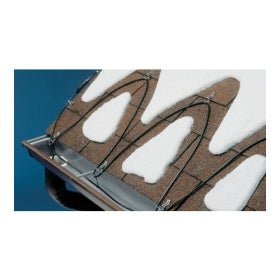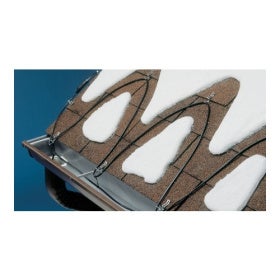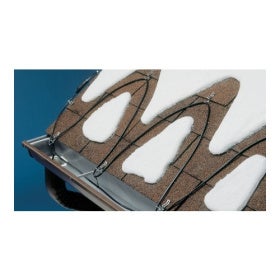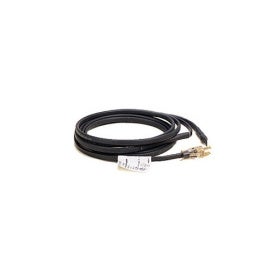| Best Seller/Typically In Stock? | Yes |
|---|---|
| Manufacturer | Easy Heat |
| Manufacturer Part Number | ADKS-600 |
| UPC/GTIN Code | 013627109742 |
| Color | Black |
| Cable Construction | Constant Wattage |
| Voltage | 120 Volt |
| Wattage | 600 Watt |
| Amperage | 5 Amp |
| Length of Product | 120 Feet |
| Watt/Foot | 5 Watt/Ft |
| Heat Trace Termination Type | Pre Terminated Heat Trace |
| Heat Trace Type | Roof and Gutter Heat Trace |
| Product Condition | New |
Features of Easy Heat ADKS-600
The Easy Heat ADKS series roof and gutter de-icing heat trace cable is an easy to use, pre-terminated, constant wattage heat trace designed to prevent costly ice damage by preventing ice dam formation and promoting the free flow of melt water through gutters and downspouts. This product is for the sole intended use of preventing ice dams from forming on inclined roofs with tab shingles, in gutters and in downspouts. This roof de-icing cable is not intended for use as a snow-melting system to clear roof of ice and snow. Never install on a flat roof. Never install on combustible materials. Not suitable for use on metal roofs.
- The ADKS kit includes a de-icing cable with a 6 foot long cold section and plug, roof clips, and cable spacers.
Eliminate damage caused by ice dams.
Even in below freezing weather, snow on the roof will often thaw because of heat from the sun and heat loss from the house through the roof. As this melted snow reaches the roof overhang it refreezes. Here there is no heat loss so the roof surface is much colder. As this melted snow refreezes again and again on the roof overhang, an ice dam is formed. Soon water backs up under shingles, and leaks into the house. ADKS roof de-icing cable prevents water and ice damage by providing a clear path for melting water. It keeps roof edges, gutters and downspouts ice-free.
When designing a roof and gutter de-icing system, it is important to know that the Easy Heat ADKS heat trace is not intended to completely eliminate snow and ice from the roof. It is simply designed to allow for the free flow of melt water off of the roof edge, down the gutter and downspouts, and finally away from the foundation of the structure. The heat trace cable length should be selected to allow for the cable to serpentine along the roof edge, drop down into and then down the gutter, and then finally exit through the downspout. This will allow for a complete path for the melt water to flow which will eliminate the costly ice dams from forming on the roof edge.
























